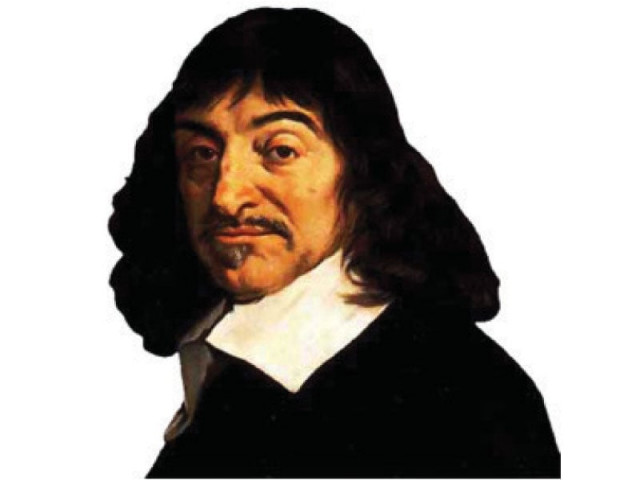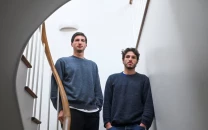‘Cogito ergo sum’: Free-thinking ideals that still confound orthodoxy
Ashfaq Salim Mirza discusses Descartes’s works and relevance.

Descartes is well-known for his contributions to philosophy especially Rationalism — a school of continental philosophy that regards reason as the main source of knowledge.
The School of Modern History and Philosophy continued to attract philosophy aficionados and students from the twin cities as it wrapped up its lectures for the month of May.
The school, a collaborative project of Friedrich-Ebert-Stiftung (FES) and veteran intellectual Ashfaq Saleem Mirza, holds a series of 13 fortnightly lectures on philosophy and history that are open to the general public.
The third lecture of the programme, delivered by Mirza on Thursday, dealt with the life and works of the French philosopher René Descartes.
Descartes is well-known for his contributions to philosophy especially Rationalism — a school of continental philosophy that regards reason as the main source of knowledge.
He is perhaps most famous for the Latin phrase “Cogito ergo sum” (I think, therefore I am) through which Descartes concluded that doubting one’s existence is, in fact, proof of existence because, according to Descartes, the process of doubting cannot occur without someone to do the doubting.

As Mirza explained, adherents of this school of philosophy believe that all or most ideas are innate and that knowledge is a priori rather than derived through the senses.
Mirza, who said he did not ascribe to Rationalism himself, presented a chronology of Descartes’ life before explaining his philosophy.
He said Descartes worked with the philosophical problem of reconciling the mechanism and the notions of God, soul and freedom. Descartes relied on doubt and breaking down a problem into simpler parts to tackle them easily, Mirza said.
Descartes was so enamoured with Mathematics and Physics that he once claimed he had a vision that the structure of the universe is mathematical and logical.
Descartes later based the criterion of truth in his philosophy on deduction — drawing a conclusion from something that is known beforehand — similar to the logic used in mathematical arguments where a mathematician reaches a conclusion using an axiom or a first premise that is considered true.
Talking to The Express Tribune, Mirza said the school is an informal gathering which attempts to make philosophy more accessible to the layman, so that a discussion can be initiated in the public sphere about important philosophical issues.
“People’s minds should always be open to free inquiry,” he said. “I just want to instill in people the idea that they should love this-worldliness, not the other-worldliness.”
Mirza also stressed that philosophical Rationalism, which places reason on a supreme pedestal, should be separated from political rationalism which involves making a rational choice.
The lectures, which will cover the works of rationalist and empiricist philosophers as well as core concepts of philosophy and history, are delivered every other Thursday and will continue till October 24.
FES is a German non-profit organisation that is working towards promoting democracy in Pakistan since the 1980s.
Published in The Express Tribune, May 31st, 2013.



















COMMENTS
Comments are moderated and generally will be posted if they are on-topic and not abusive.
For more information, please see our Comments FAQ